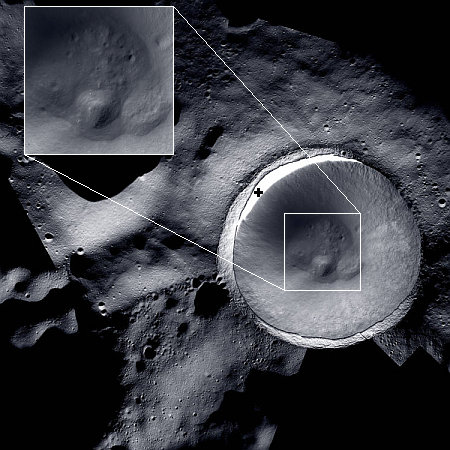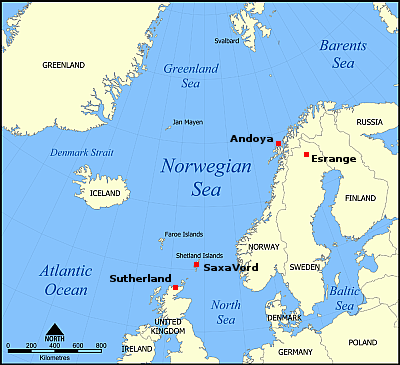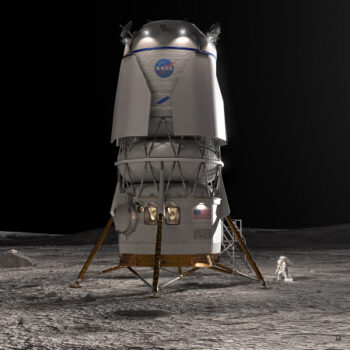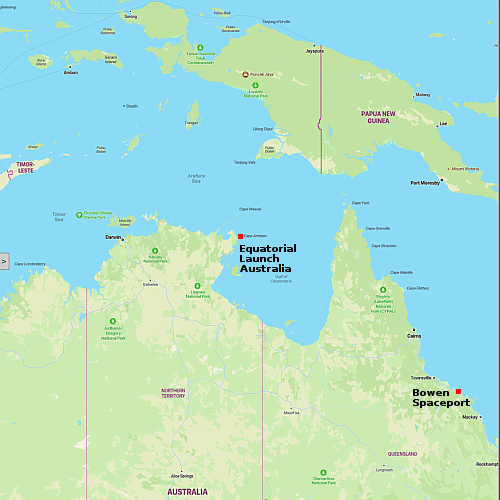SpaceX announces launch time tomorrow for 3rd Superheavy/Starship launch
UPDATE: The FAA has now amended [pdf] SpaceX’s launch license to approve tomorrow’s Superheavy/Starship launch.
Original post:
————————-
SpaceX has sent out email notices and now revised its Starship/Superheavy webpage to reflect a target launch time for the third Superheavy/Starship launch tomorrow, March 14, 2024, at 7 am (Central).
The third flight test of Starship is targeted to launch Thursday, March 14. The 110-minute test window opens at 7:00 a.m. CT.
A live webcast of the flight test will begin about 30 minutes before liftoff, which you can watch here and on X @SpaceX. As is the case with all developmental testing, the schedule is dynamic and likely to change, so be sure to stay tuned to our X account for updates.
I have not yet received a notice from the FAA, announcing the approval of a launch license, but SpaceX’s announcement likely signals that the approval has been given. As I noted yesterday, this approval was likely given as close to the launch as possible to help preclude any legal action by the various leftist activist groups that want to stop Elon Musk, stop SpaceX, and stop any grand human achievement. Their dislike and alienation with success is so deep that such tactics are now necessary to stymie them and allow such achievements to proceed.
A youtube live stream will also be available here. If the flight succeeds in getting Starship into orbit, it will attempt to open and close its payload door, attempt a propellant transfer test, and then attempt the first in-space relight of a Raptor engine in order to bring it down controlled in the Indian Ocean.
UPDATE: The FAA has now amended [pdf] SpaceX’s launch license to approve tomorrow’s Superheavy/Starship launch.
Original post:
————————-
SpaceX has sent out email notices and now revised its Starship/Superheavy webpage to reflect a target launch time for the third Superheavy/Starship launch tomorrow, March 14, 2024, at 7 am (Central).
The third flight test of Starship is targeted to launch Thursday, March 14. The 110-minute test window opens at 7:00 a.m. CT.
A live webcast of the flight test will begin about 30 minutes before liftoff, which you can watch here and on X @SpaceX. As is the case with all developmental testing, the schedule is dynamic and likely to change, so be sure to stay tuned to our X account for updates.
I have not yet received a notice from the FAA, announcing the approval of a launch license, but SpaceX’s announcement likely signals that the approval has been given. As I noted yesterday, this approval was likely given as close to the launch as possible to help preclude any legal action by the various leftist activist groups that want to stop Elon Musk, stop SpaceX, and stop any grand human achievement. Their dislike and alienation with success is so deep that such tactics are now necessary to stymie them and allow such achievements to proceed.
A youtube live stream will also be available here. If the flight succeeds in getting Starship into orbit, it will attempt to open and close its payload door, attempt a propellant transfer test, and then attempt the first in-space relight of a Raptor engine in order to bring it down controlled in the Indian Ocean.










